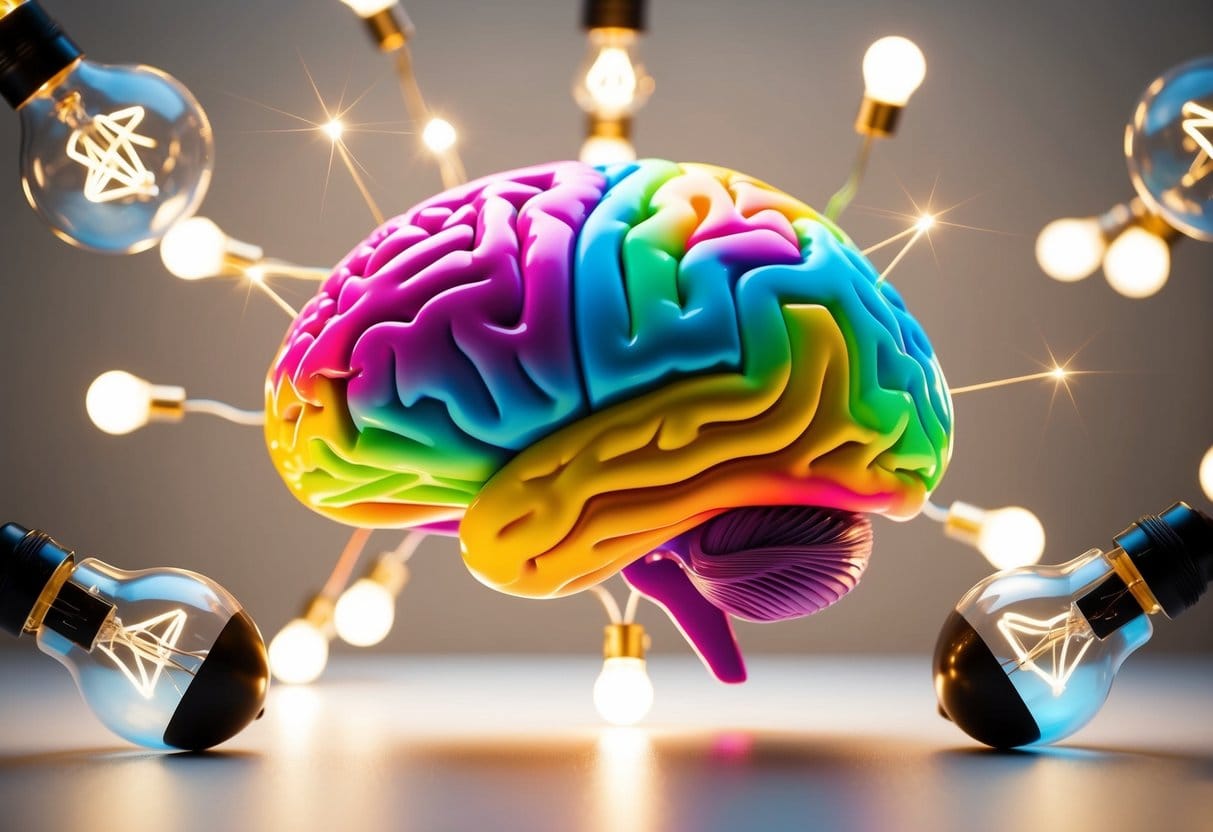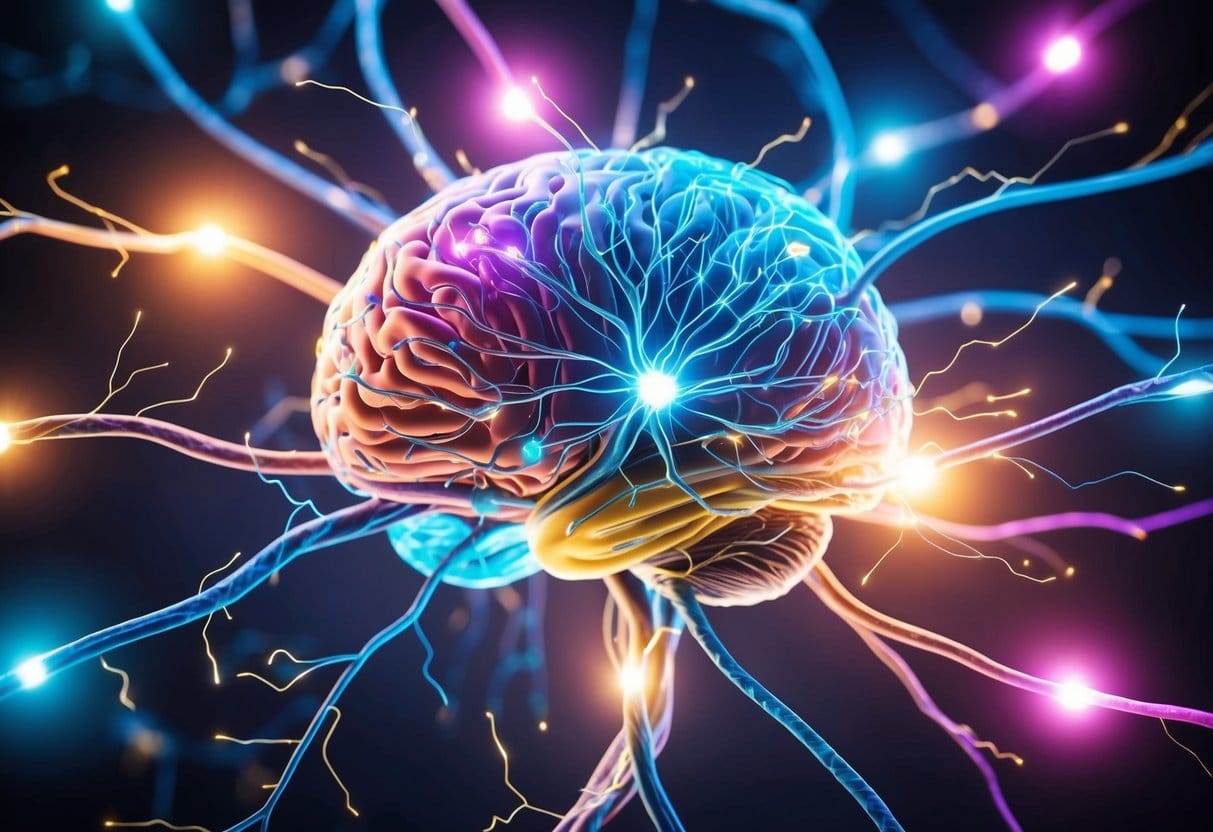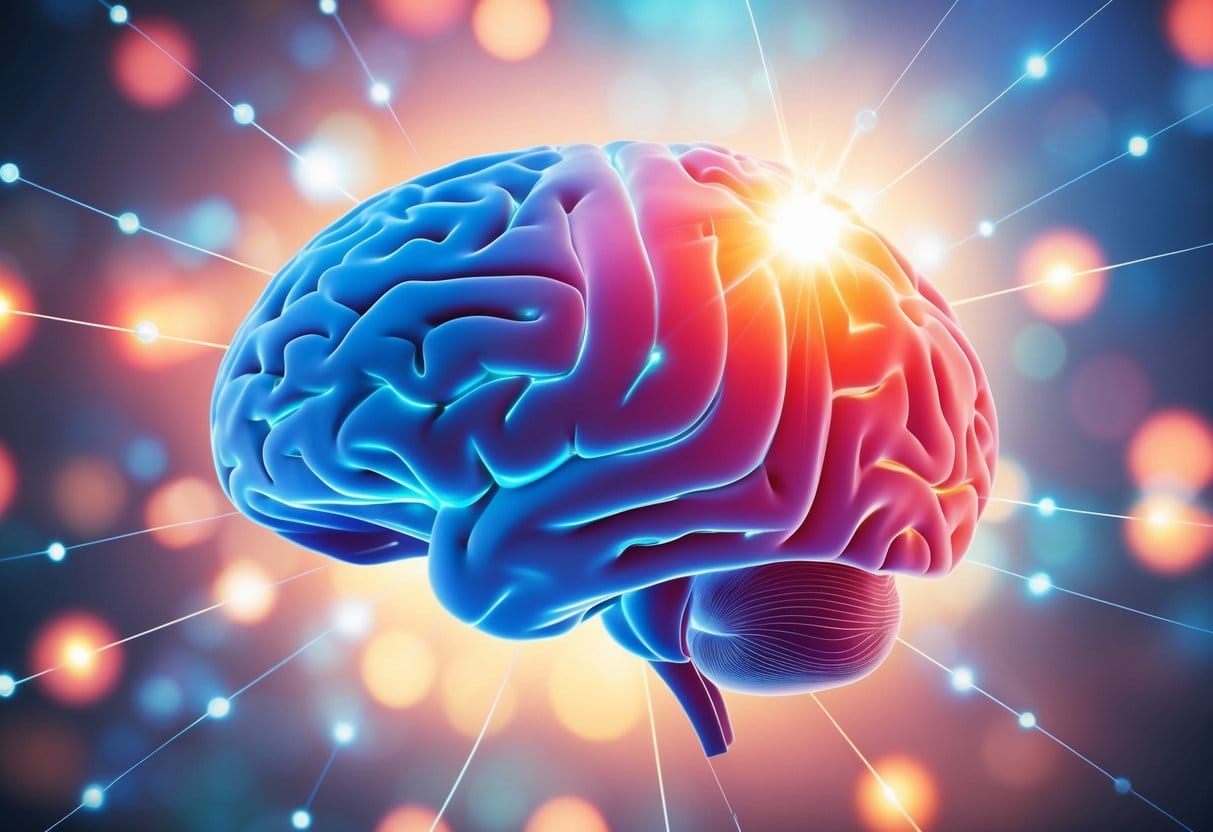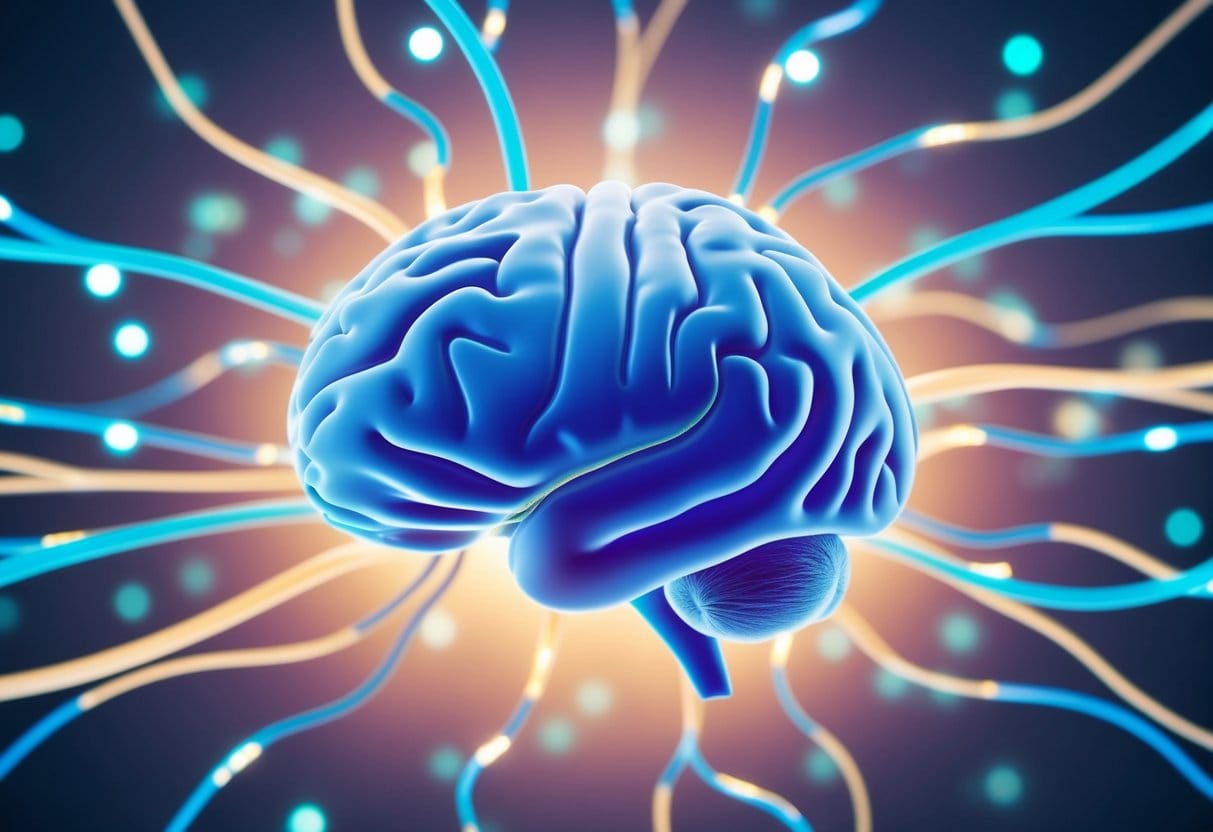Table of Contents
Exploring the fascinating realm of neuroscience can reveal powerful strategies to rewire your brain for a more positive outlook.
By tapping into the brain’s natural ability to change and adapt, you can transform negative thinking patterns, improve mental resilience, and elevate your overall well-being.
Neuroscientists have uncovered various “brain hacks” that involve mindset shifts and intentional habits, showing how you can reshape your mental landscape to foster positivity.

Imagine being able to manage stress and increase your productivity by just adjusting the way you think.
These techniques are not only based on scientific findings but are also practical, making them accessible tools for anyone seeking a mindset overhaul.
By integrating these strategies into your daily routine, you open up new pathways for personal growth and emotional wellness.
Key Takeaways
- Neuroscience provides tools to shift your mindset positively.
- Simple habits can enhance mental well-being and productivity.
- Practical techniques help in managing stress and anxiety.
Understanding the Brain’s Wiring

Your brain’s wiring is crucial for shaping your thoughts, habits, and overall mental performance.
By understanding how neuroplasticity and habitual thinking influence your cognitive abilities, you can harness these concepts to boost brain health effectively.
Neuroplasticity Fundamentals
Neuroplasticity is your brain’s ability to reorganize itself by forming new neural connections. This concept shows how adaptable your brain can be, allowing you to learn new skills and recover from injuries.
As you expose yourself to new experiences, your brain continuously adjusts and strengthens pathways.
Your thoughts and behaviors can influence these changes. Engaging in activities that challenge your cognitive abilities could lead to a more robust and flexible brain network. Regular practice of such tasks enhances your mental performance over time.
The Impact of Habitual Thinking
Habitual thinking involves patterns of thought repeated over time, eventually becoming automatic. These patterns significantly affect how you perceive and respond to the world. If you often focus on negative aspects, your brain might become predisposed to negative thoughts.
Re-framing negative thoughts into positive ones can gradually adjust these pathways. This cognitive reframing leverages neuroplasticity, helping shift your mental orientation towards more constructive thinking. Consistent effort in altering habitual thought processes contributes to better emotional resilience and overall well-being.
Brain Health and Mental Performance
Maintaining brain health is vital to ensuring optimal mental performance.
A combination of physical exercise, proper nutrition, and mental stimulation can enhance brain function.
Regular activities like reading, solving puzzles, or learning a new language can bolster your cognitive abilities.
Nutrition also plays a pivotal role. Consuming a balanced diet rich in omega-3 fatty acids, antioxidants, and vitamins supports brain health and helps fight inflammation.
Adequate sleep is crucial, as it allows your brain to consolidate memories and eliminate toxins that may impair function.
By prioritizing these factors, you foster an environment conducive to improved mental performance, positively influencing your cognitive abilities.
Cultivating a Positive Mindset

Developing a positive mindset involves transforming how you perceive and react to life’s challenges. It requires a concerted effort to focus on positive change by leveraging positive thinking strategies, enhancing resilience, and building your confidence.
The Power of Positive Thinking
Positive thinking can significantly influence your mindset by encouraging optimism. By consciously challenging negative thoughts, you’re rewiring your brain to focus on the positive. This technique, known as cognitive reframing, allows you to see situations from a different perspective.
Creating daily affirmations can also help instill a positive outlook. Start by writing statements that reflect desired outcomes and repeat them to yourself regularly.
Practice visualization by imagining yourself succeeding in tasks that matter to you. These strategies can gradually shift your mindset to prioritize positivity.
Building Resilience
Resilience allows you to bounce back from adversity and maintain mental well-being. It involves developing coping strategies that help you navigate stress and setbacks.
You can cultivate resilience by setting realistic goals and breaking them into manageable steps.
Mindfulness practices, such as meditation and deep breathing, can bolster your resilience by reducing stress levels and promoting clarity.
Another effective approach is to build strong support networks. Surround yourself with people who encourage and inspire you, as this can create a safety net during tough times.
Boosting Confidence
Confidence plays a crucial role in shaping your mindset. To build self-assurance, start by acknowledging your strengths and past achievements. Regularly review these to remind yourself of your capabilities.
Setting up a table of achievements and strengths can be a visual motivator.
Feedback is another powerful tool for growth. Seek constructive criticism from trusted peers, using it as a stepping stone for improvement.
Additionally, practice skills in varied situations to reinforce and expand your abilities. The more you step out of your comfort zone, the more your confidence will increase.
Strategies for Mindfulness and Well-being

Fostering a positive mindset involves various techniques that focus on mindfulness and emotional well-being. These strategies help you enhance happiness and maintain mental health.
Mindfulness Techniques
Engaging in mindfulness techniques can profoundly impact your state of mind.
Practices such as mindfulness meditation encourage you to maintain awareness of the present moment, reducing stress and enhancing clarity. In focused mindfulness meditation, hone your attention on a single element, like your breath, to promote concentration and reduce anxiety.
Incorporating body scans allows you to align your mind and body, identifying and releasing tension held within. Regular practice of these techniques improves emotional regulation and enhances your overall sense of well-being.
Improving Emotional Well-being
Cultivating emotional well-being is crucial for a sustainable positive mindset.
Emotional check-ins, where you regularly assess and acknowledge your feelings, can help you understand emotional patterns and triggers. Recognize emotions without judgment, using them as data to guide responses.
Gratitude practice can boost happiness by refocusing your perspective on positive experiences. Writing down small moments of gratitude enhances mood and fosters resilience.
Developing these habits creates a supportive framework for managing emotional states and promoting sustained well-being.
Managing Stress and Anxiety

Managing stress and anxiety is crucial for maintaining mental health and overall well-being. Effective techniques can transform anxious thoughts into calm energy and provide relief in the midst of persistent chronic stress.
Techniques to Reduce Stress
Incorporating mindfulness practices into your daily routine can significantly reduce stress levels.
Techniques such as deep breathing and meditation help calm the mind. Spend a few moments focusing on your breath, inhaling deeply, and exhaling slowly. This helps reset your focus and reduces tension.
Physical activity is another powerful method. Even short walks or light exercises stimulate endorphin production, improving your mood and reducing stress. Regular physical activity can strengthen your resilience to stress.
Prioritize your tasks. Create to-do lists to organize your tasks based on urgency and importance. Tackling manageable tasks can prevent overwhelm, making it easier to stay calm under pressure.
Dealing with Chronic Stress
Chronic stress can have adverse effects on your health.
Identifying triggers that cause stress is the first critical step. Keep a stress diary where you note down events that cause stress and your reactions. This helps in recognizing patterns.
Implement relaxation techniques like yoga or tai chi. Such practices integrate both physical and mental exercises, fostering a sense of balance and calmness. Consistent practice helps mitigate chronic stress symptoms.
Sleep plays a crucial role. Establish a routine by going to bed and waking up at the same time each day. Quality sleep naturally decreases stress hormone levels, giving your body a chance to recuperate from daily challenges.
Anxiety-Relief Methods
Addressing anxiety commonly involves cognitive-behavioral strategies.
Challenge anxious thoughts by questioning their validity and seeking alternative perspectives. This can break the cycle of negative thinking.
Progressive muscle relaxation is another useful technique. It involves tensing and then gradually relaxing different muscle groups. This practice helps reduce anxiety and promotes physical relaxation.
Stay connected with supportive friends or family. Sharing your experiences can offer relief and transform feelings of anxiety into manageable challenges. Social connections provide emotional support that is critical in calming anxious thoughts.
Incorporating a mix of these strategies into your lifestyle helps build a more positive mindset and reduces anxiety’s impact on daily activities.
Brain Training for Enhanced Productivity

Unlocking the full potential of your brain holds immense promise for enhanced productivity. By developing cognitive skills and boosting mental agility, you can foster an environment that supports your goals and improves your productivity.
Implementing targeted brain training techniques can significantly impact your ability to focus and perform efficiently.
Cognitive Skill Development
Engaging in activities that challenge your mind can help sustain and improve your cognitive abilities.
Puzzles, brain games, and educational apps provide an interactive way to sharpen your thinking skills. These activities enhance memory, attention, and processing speed, all crucial aspects of productivity.
It’s also beneficial to incorporate mindfulness practices into your daily routine. Mindfulness encourages you to focus on the present moment, reducing stress and providing a clearer mind for tackling tasks. This practice is linked to improved attention and cognitive flexibility, essential facets of productivity.
Incorporating regular breaks during work can prevent cognitive fatigue. Short pauses help maintain concentration levels and support the brain’s recovery process, ultimately boosting efficiency and productivity in completing tasks.
Boosting Mental Agility
Improving mental agility requires a commitment to varied and stimulating exercises.
Regular physical activity, such as aerobic exercise, has been shown to enhance brain function by increasing blood flow and promoting neuroplasticity. This not only supports current cognitive abilities but also facilitates faster learning.
Try introducing new activities into your routine, such as learning a musical instrument or picking up a new language. Both activities are believed to strengthen neural connections, enhancing your adaptability and problem-solving capabilities.
Lastly, consider celebrating small achievements. Recognition of minor successes helps stimulate dopamine, which plays a role in motivation and pleasure. This boost can improve your willingness to engage in future tasks and contribute to sustained productivity levels.
Changing Habits Through Neuroscience Coaching
Neuroscience coaching employs cutting-edge techniques to help you modify your habits by leveraging an understanding of how your brain works. This innovative approach allows for a personalized experience that can greatly enhance your ability to enact positive behavioral changes.
Neuroscience-Based Coaching Methods
Using neuroscience-based coaching methods, coaches guide you to identify and restructure unhelpful habits.
By applying insights from neuroscience, you can learn how to foster lasting changes. Focused discussions center on the brain’s neuroplasticity, which is its ability to rewire itself in response to new experiences.
Implementing small, incremental changes is crucial. These alterations in behavior, repeated over time, can lead to substantial shifts in your brain’s neural pathways.
Coaches might utilize techniques such as cognitive behavioral exercises to assist you in recognizing patterns and triggering changes. This approach emphasizes awareness and reinforcement to cultivate healthier routines effectively.
Personalized Brain Training Sessions
Personalized brain training sessions are tailored to your unique needs and cognitive profile.
These sessions involve a variety of exercises designed to target specific areas of the brain associated with habit formation. Coaches may incorporate memory-enhancing games or problem-solving tasks that challenge your cognitive abilities.
You can expect a blend of activities that promote engagement and motivation, which are crucial for sustained behavior change.
Adjustments to these sessions are made based on your progress, allowing your coach to adapt strategies in real time. By focusing on tasks that improve your brain’s ability to adapt, you are better positioned to dissolve old habits and create new, positive ones.
Advanced Techniques in Neuroplasticity
Exploring advanced techniques like hypnosis can significantly enhance your brain’s ability to adapt and change.
These methods utilize the brain’s natural ability to rewire itself. They emphasize the importance of patience in achieving meaningful results.
The Role of Hypnosis in Neuroscience
Hypnosis is a powerful tool in the realm of neuroplasticity. During hypnosis, you’re guided into a state of focused attention and increased suggestibility.
This state allows for the alteration of neural pathways, which facilitates the rewiring of the brain.
It can be particularly effective for altering ingrained habits and improving mental health conditions. The physiological basis lies in the brain’s ability to form new connections while weakening outdated ones.
Practitioners often work to target specific areas of your brain to instigate desired changes, tapping into the brain’s adaptability.
Harnessing Neuroplasticity for Change
To harness neuroplasticity effectively, a structured approach focusing on repetition and consistency is essential.
Engaging in activities like mindfulness and mental exercises promotes the strengthening of neural connections. Incorporating these practices into daily life supports lasting changes in behavior and mindset.
Patience is critical, as the brain’s rewiring is a gradual process.
Tracking your progress through journaling or apps can help you stay motivated. It may take weeks or even months to see significant improvements.
This ongoing commitment is vital for anyone looking to leverage neuroplasticity for personal growth.
Conclusion: Integrating Neuroscience into Everyday Life
Embracing neuroscience techniques in daily life can enhance your mental well-being. By incorporating simple strategies rooted in research, you position yourself well for positive growth.
Mindfulness practices, such as meditation, can transform how you process stress. By dedicating a few minutes each day, you stimulate brain areas linked to happiness, fostering a balanced mindset.
Cultivating patience is essential. Positive changes in brain structure and function do not occur overnight. Give yourself time to notice gradual improvements, reinforcing these habits consistently.
Incorporating these concepts into your routine can lead to lasting positive change. From small daily activities to larger lifestyle shifts, there are many options to explore.
Frequently Asked Questions
Incorporating neuroscience hacks into your routine can significantly enhance your mindset. Mindfulness, diet, and physical activity play crucial roles in neuroplasticity and positivity.
What are effective techniques for positive neurological change?
Engaging regularly in activities that challenge your brain, such as learning new skills or problem-solving, encourages positive changes.
Techniques like visualization, affirmations, and gratitude exercises are also influential in promoting a positive mindset through neurological pathways.
Can practicing mindfulness contribute to brain restructuring?
Yes, mindfulness exercises like meditation can lead to brain restructuring. They help increase gray matter density in areas associated with empathy and emotional regulation, fostering a more positive mindset.
Regular practice enhances attention control and emotional awareness, benefiting overall cognitive function.
Are there specific exercises recommended for enhancing cognitive function?
Exercises like puzzles, brain games, and learning a new language stimulate cognitive function.
Physical activities such as aerobic exercises enhance blood flow to the brain, supporting brain health. Consistency in these exercises helps maintain and improve neuroplasticity.
What role does diet play in rewiring the brain for positivity?
Your diet significantly influences brain health.
Nutrients like omega-3 fatty acids, antioxidants, and vitamins are essential for maintaining neural pathways and boosting mood. Consuming a balanced diet with plenty of fruits, vegetables, and whole grains can support positive neurological changes.
How does consistent physical exercise impact neuroplasticity?
Consistent physical exercise promotes neuroplasticity by improving blood circulation and stimulating the release of growth factors.
These elements contribute to the formation of new neural connections. Activities such as jogging, swimming, and cycling are effective in enhancing your brain’s adaptability and resilience.
What are the steps to developing a mindset geared towards growth and positivity?
Developing a growth mindset involves setting clear goals, practicing self-reflection, and embracing challenges as opportunities.
Incorporating regular self-care routines and focusing on progress rather than perfection helps reinforce a positive and adaptive mindset.
These steps encourage continuous personal development.




